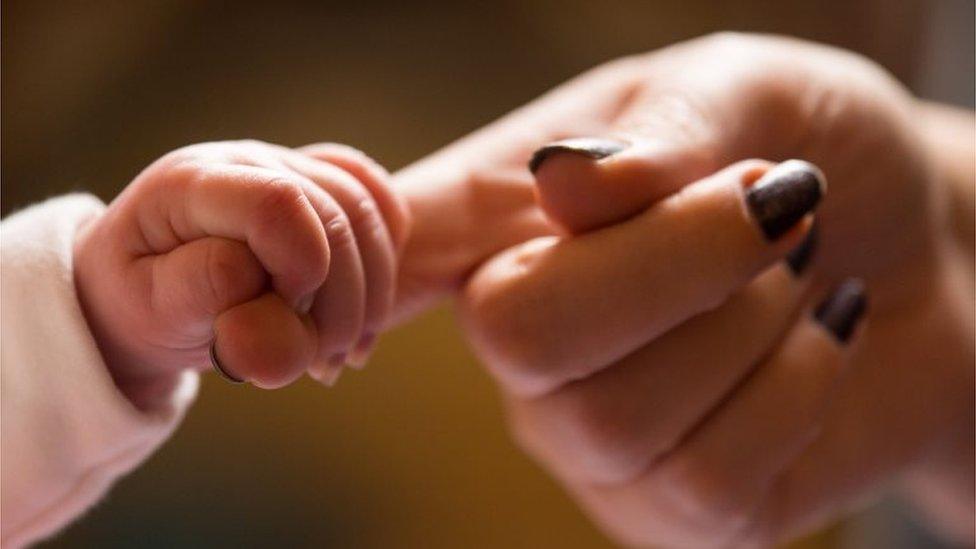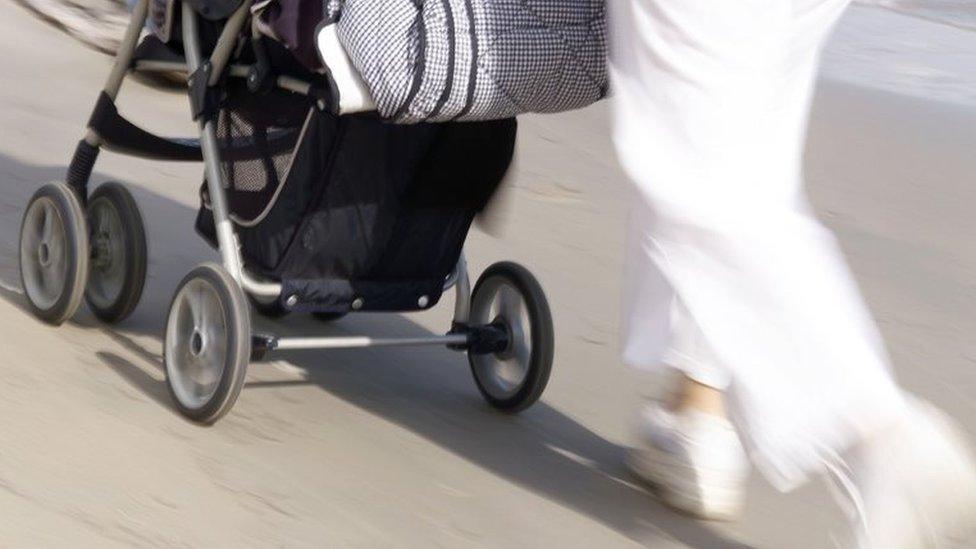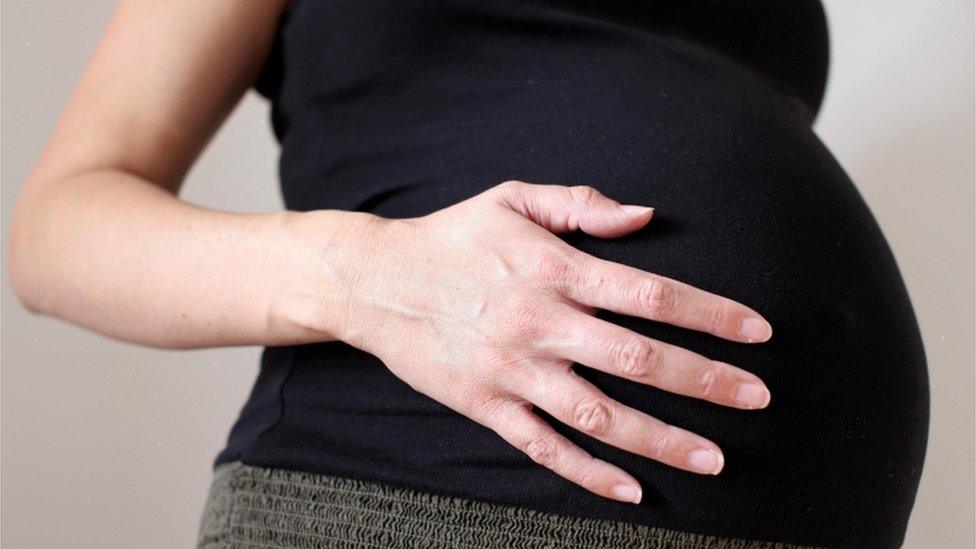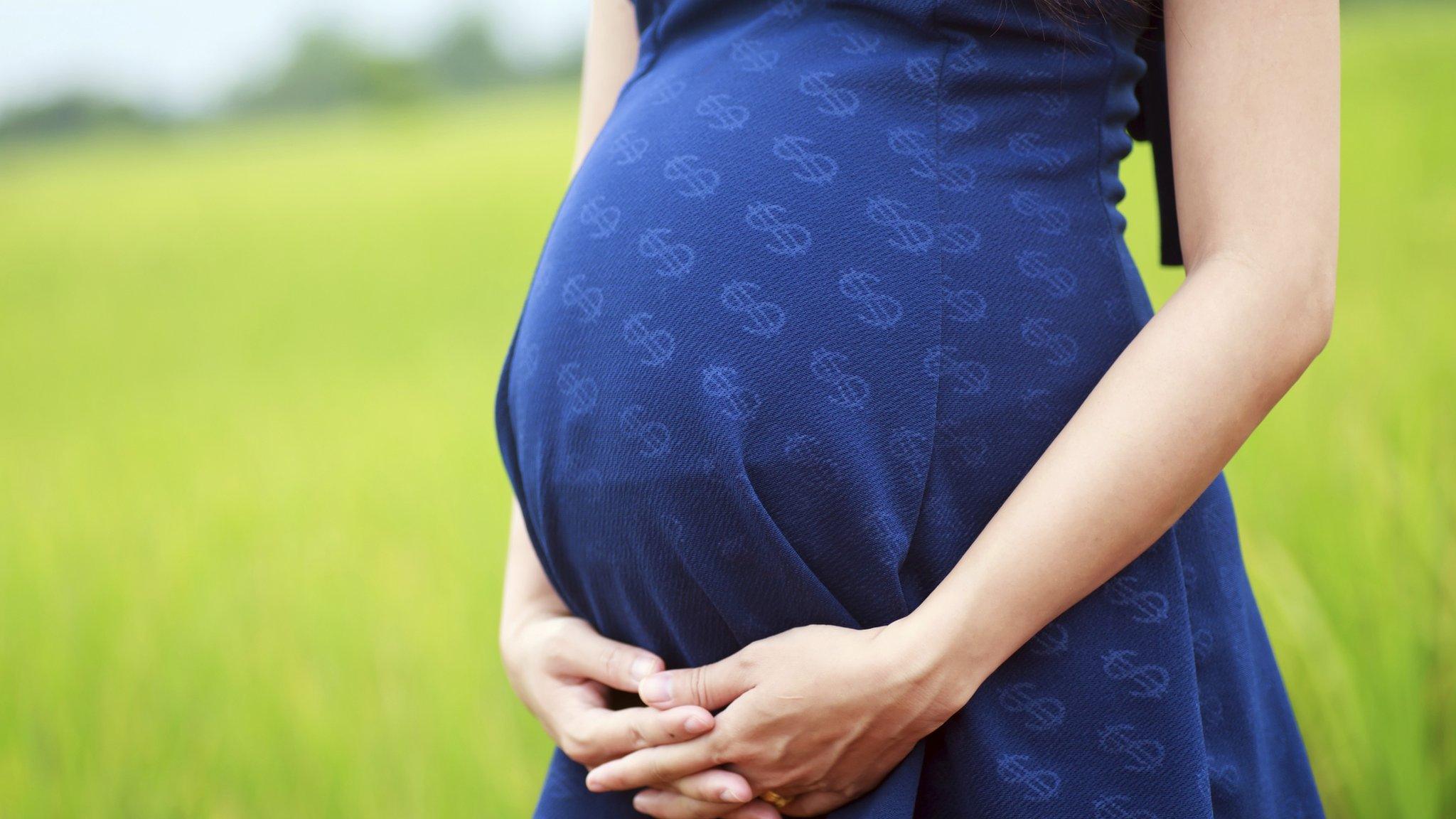Proportion of teenage mothers at 'lowest in decades'
- Published

The proportion of women having at least one child by the age of 20 has fallen to its lowest level in decades, the Office for National Statistics says.
Its report, external, which looked at women in England and Wales, showed roughly one in 14 women born in 1995 (7%) had at least one child before they were 20.
The Family Planning Association said the decline showed teenagers have "the skills to make positive choices".
But others criticised it as the result of pressure to use contraceptives.
Figures from the ONS report demonstrate there has been a "gradual decrease" in the rate of teenage motherhood, which is now comparable to the level seen in the generation of women born in the early 1920s.
The proportion of 7% is in comparison to a peak of one in five (20%) for women born in 1952.
The news follows a decline in the rate of teenage pregnancies, which the ONS said earlier this year had fallen to the lowest level since records began.
The latest data is measured differently to teenage pregnancy rates, which includes abortions.
Later motherhood
The report also looked at family size in women from different generations, and showed the average family size for women born in 1970 by the time they were aged 45 was 1.91 children.
This was slightly lower than their mothers' generation, represented by women born in 1943, who had an average of 2.24 children by the time they were 45.
However, the ONS said this was not necessarily evidence that women were having less children, and it suggested the decrease was linked to women having children later in life.

Dr Ellie Lee said there were still "negative attitudes" about young mothers
Paul Casey, from sexual health charity the Family Planning Association, said the figures are "hopefully evidence of teenagers having easy access to contraception and support services, and the confidence to use them".
"A lot of hard work, particularly through the 10-year Teenage Pregnancy Strategy, has helped to bring about this change, and it's really important we don't lose momentum."
He added: "While we still do not have consistent, high quality sex and relationships education for all young people, and we see sexual and reproductive health services affected by recent public health spending cuts, we risk unravelling years of progress."
'Negative attitudes'
But Dr Ellie Lee, Director of the Centre for Parenting Culture Studies at the University of Kent, said the decline is not necessarily good news.
"Teenage births were already at historically low levels, and the trajectory before the Teenage Pregnancy Strategy was already in a downwards direction," she said.
The strategy "should be much more controversial than it is", she said, because "there was a push, through the strategy, of long-term contraceptives such as implants and injections".
"It was presented as improving the sexual and reproductive health of children" Dr Lee said, but "a teen needs to be able to have a choice-based discussion about what's right for her".
She added: "There are still negative attitudes towards teenage mothers and it is unwarranted. It is seen as a disaster, but there is no reason to suggest that they are any worse than any other mother."
- Published9 March 2016

- Published5 July 2016
